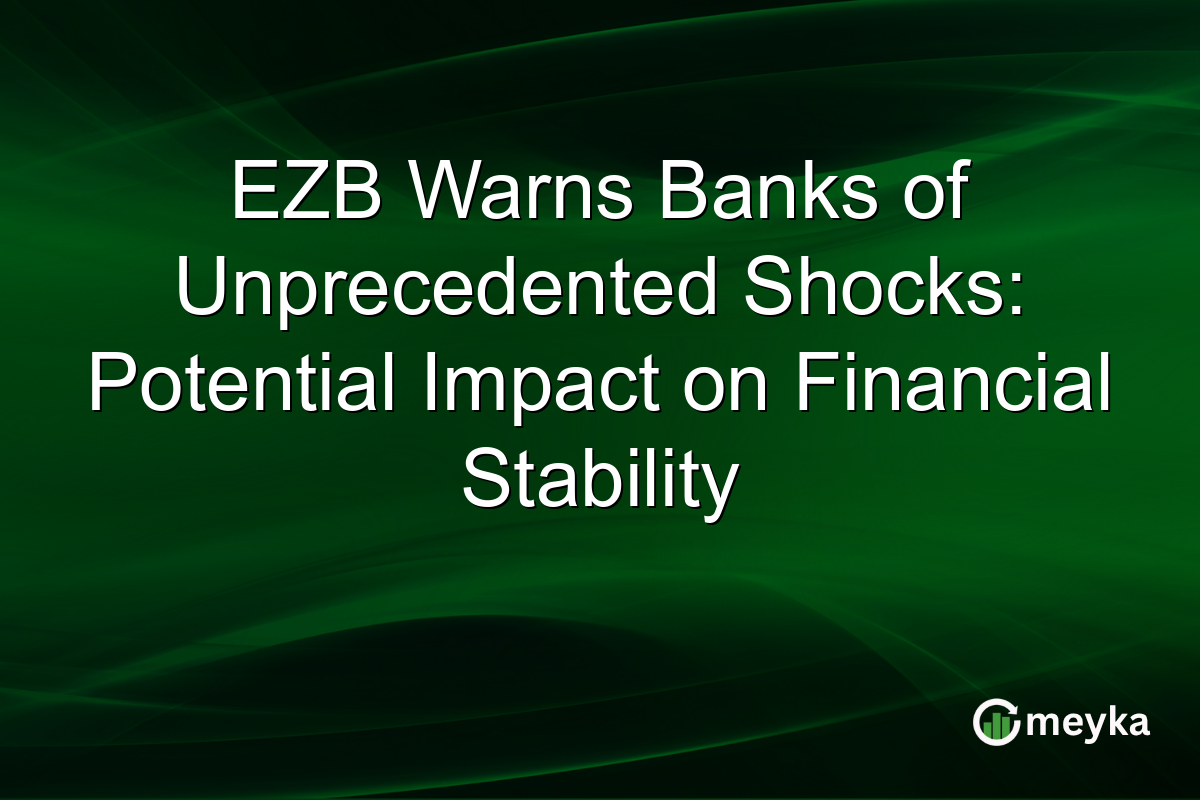EZB Warns Banks of Unprecedented Shocks: Potential Impact on Financial Stability
The European Central Bank (EZB) has sounded the alarm, warning banks about unprecedented financial shocks driven by escalating geopolitical tensions and other global risks. This cautionary note signals potential vulnerabilities within the banking sector that could significantly impact asset quality, profitability, and financial stability. Investors in Switzerland and across Europe should take notice, as these developments outline possible risks and challenges ahead. This analysis delves into the implications of the EZB warnings, suggesting what stakeholders should be mindful of to navigate the dynamic economic landscape.
Continue Reading on Meyka
This article is available in full on our main platform. Get access to complete analysis, stock insights, and more.
Read Full Article →





